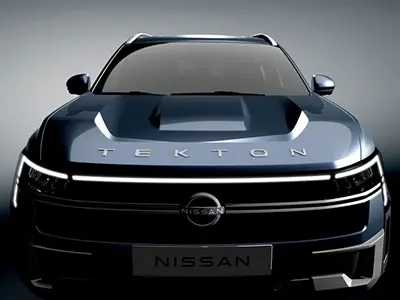
The new Nissan Tekton compact crossover, recently unveiled, marks another important step for the Japanese automaker as part of its "One Car, One World" strategic plan. Production of the model is planned for its Chennai, India, a logical step given the growing importance of the local market for global automotive brands. The overall trend in recent years has been shifting toward India, particularly amid sales challenges in China, prompting companies like Suzuki and Toyota to establish joint production of electric models there. Nissan also sees significant opportunities in this region, intending not only to strengthen its position locally but also to use its production facilities for subsequent sales to other international markets, a strategy already successfully implemented with the Magnite crossover, exported to South Africa.
Notably, during the official presentation, attended by Nissan Motor CEO Alfonso Albaisa, the new Tekton was described as embodying the adventurous spirit of the iconic Patrol SUV, reflected in its rugged design with sharp edges and the recognizable light signature of the front and rear lights. However, the most significant technical aspect, generating intense interest, was the company's engineers' decision to use the CMF-B platform, which is the well-known basis for the current generation of the popular Renault Duster crossover. Even the few, rather unspecified images shown on the video wall during the event strongly suggest that the two vehicles may be quite similar, not only technically but also visually.
Regarding the new model's interior, information remains relatively scarce. However, according to Indian sources well-versed in the project, the Nissan Tekton's cabin will feature a seven-inch digital instrument cluster and a ten-inch touchscreen infotainment system, which is identical to the current Duster. The software and user interface will be developed by Nissan specialists to provide owners with a signature user experience. According to preliminary data, the powertrain lineup for the Indian market will include a proven 1.3-liter turbocharged gasoline engine producing approximately 154 horsepower, paired with a seven-speed automatic transmission, promising sufficient performance and power delivery.
Despite optimistic statements from Nissan Motor India CEO Saurabh Vatsa that the Tekton will spearhead the brand's growth story in the region, the company's current position requires extremely cautious forecasts. The official presentation left many key questions unanswered, including the exact market launch date, the full range of options, and, most importantly, the pricing policy, which is traditionally a decisive factor for Indian consumers. Clearly, management optimism alone won't be enough to win customer trust, and so Nissan will need to reveal significantly more details about its new product in the near future to compete with established players in the compact crossover segment.

